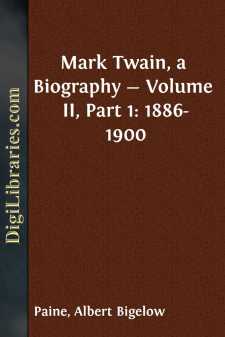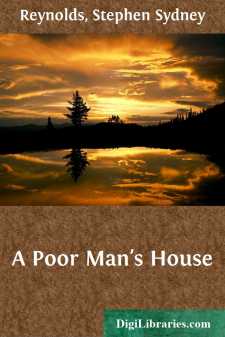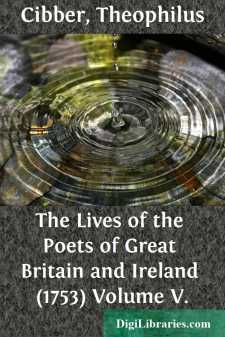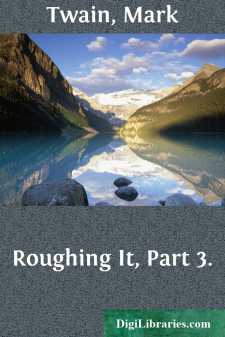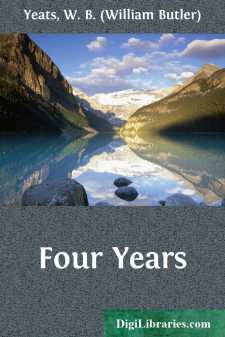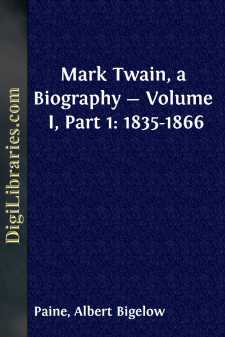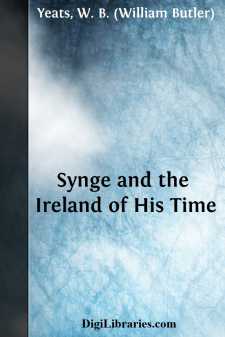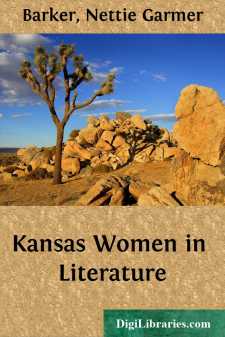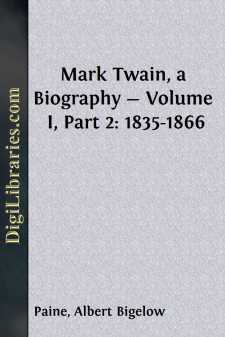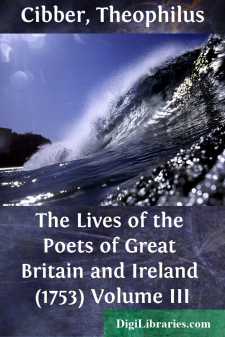Biography & Autobiography
- Adventurers & Explorers 15
- Artists, Architects, Photographers 16
- Business 2
- Composers & Musicians 14
- Criminals & Outlaws 5
- Editors, Journalists, Publishers 6
- Educators 1
- Entertainment & Performing Arts 3
- General 73
- Health, Exercise & Fitness 1
- Historians 3
- Historical 83
- Law Enforcement 1
- Lawyers & Judges 3
- Literary
- Medical 7
- Military 48
- Naturalists, Gardeners, Environmentalists 8
- Personal Memoirs & Diaries 226
- Philosophers 3
- Political 9
- Presidents & Heads of State 38
- Religious 38
- Rich & Famous 27
- Scientists 13
- Women 31
Literary Books
Sort by:
MARK TWAIN AT FORTY In conversation with John Hay, Hay said to Clemens: "A man reaches the zenith at forty, the top of the hill. From that time forward he begins to descend. If you have any great undertaking ahead, begin it now. You will never be so capable again." Of course this was only a theory of Hay's, a rule where rules do not apply, where in the end the problem resolves itself into...
more...
PREFACE The substance of "A Poor Man's House" was first recorded in a journal, kept for purposes of fiction, and in letters to one of the friends to whom the book is dedicated. Fiction, however, showed itself an inappropriate medium. I was unwilling to cut about the material, to modify the characters, in order to meet the exigencies of plot, form, and so on. I felt that the life and the...
more...
THE LIVES OF THE POETS * * * * * EUSTACE BUDGELL, Esq; was the eldest son of Gilbert Budgell, D.D. of St. Thomas near Exeter, by his first wife Mary, the only daughter of Dr. William Gulston, bishop of Bristol; whose sister Jane married dean Addison, and was mother to the famous Mr. Addison the secretary of state. This family of Budgell is very old, and has been settled, and known in Devonshire above...
more...
by:
Mark Twain
CHAPTER XXI. We were approaching the end of our long journey. It was the morning of the twentieth day. At noon we would reach Carson City, the capital of Nevada Territory. We were not glad, but sorry. It had been a fine pleasure trip; we had fed fat on wonders every day; we were now well accustomed to stage life, and very fond of it; so the idea of coming to a stand-still and settling down to a humdrum...
more...
At the end of the eighties my father and mother, my brother and sisters and myself, all newly arrived from Dublin, were settled in Bedford Park in a red-brick house with several wood mantlepieces copied from marble mantlepieces by the brothers Adam, a balcony, and a little garden shadowed by a great horse-chestnut tree. Years before we had lived there, when the crooked, ostentatiously picturesque...
more...
MARK TWAIN A BIOGRAPHY I ANCESTORS On page 492 of the old volume of Suetonius, which Mark Twain read until his very last day, there is a reference to one Flavius Clemens, a man of wide repute "for his want of energy," and in a marginal note he has written: "I guess this is where our line starts." It was like him to write that. It spoke in his whimsical fashion the attitude of humility,...
more...
J.M. SYNGE AND THE IRELAND OF HIS TIME On Saturday, January 26th, 1907, I was lecturing in Aberdeen, and when my lecture was over I was given a telegram which said, 'Play great success.' It had been sent from Dublin after the second Act of 'The Playboy of the Western World,' then being performed for the first time. After one in the morning, my host brought to my bedroom this second...
more...
EFFIE GRAHAM. The last place one would expect to find romance is in arithmetic and yet—Miss Effie Graham, the head of the Department of Mathematics in the Topeka High School, has found it there and better still, in her lecture "Living Arithmetic" she has shown others the way to find it there. Miss Graham is one of the most talented women of the state. Ex-Gov. Hoch has called her "one of...
more...
THE LECTURER It was not easy to take up the daily struggle again, but it was necessary.—[Clemens once declared he had been so blue at this period that one morning he put a loaded pistol to his head, but found he lacked courage to pull the trigger.]—Out of the ruck of possibilities (his brain always thronged with plans) he constructed three or four resolves. The chief of these was the trip around...
more...
THE LIVES OF THE POETS. * * * * * Sir JOHN DENHAM. An eminent poet of the 17th century, was the only son of Sir JohnDenham, knight, of Little Horsley in Essex, and sometime baron of theExchequer in Ireland, and one of the lords justices of that kingdom.He was born in Dublin, in the year 1615[1]; but was brought over fromthence very young, on his father's being made one of the barons of...
more...


